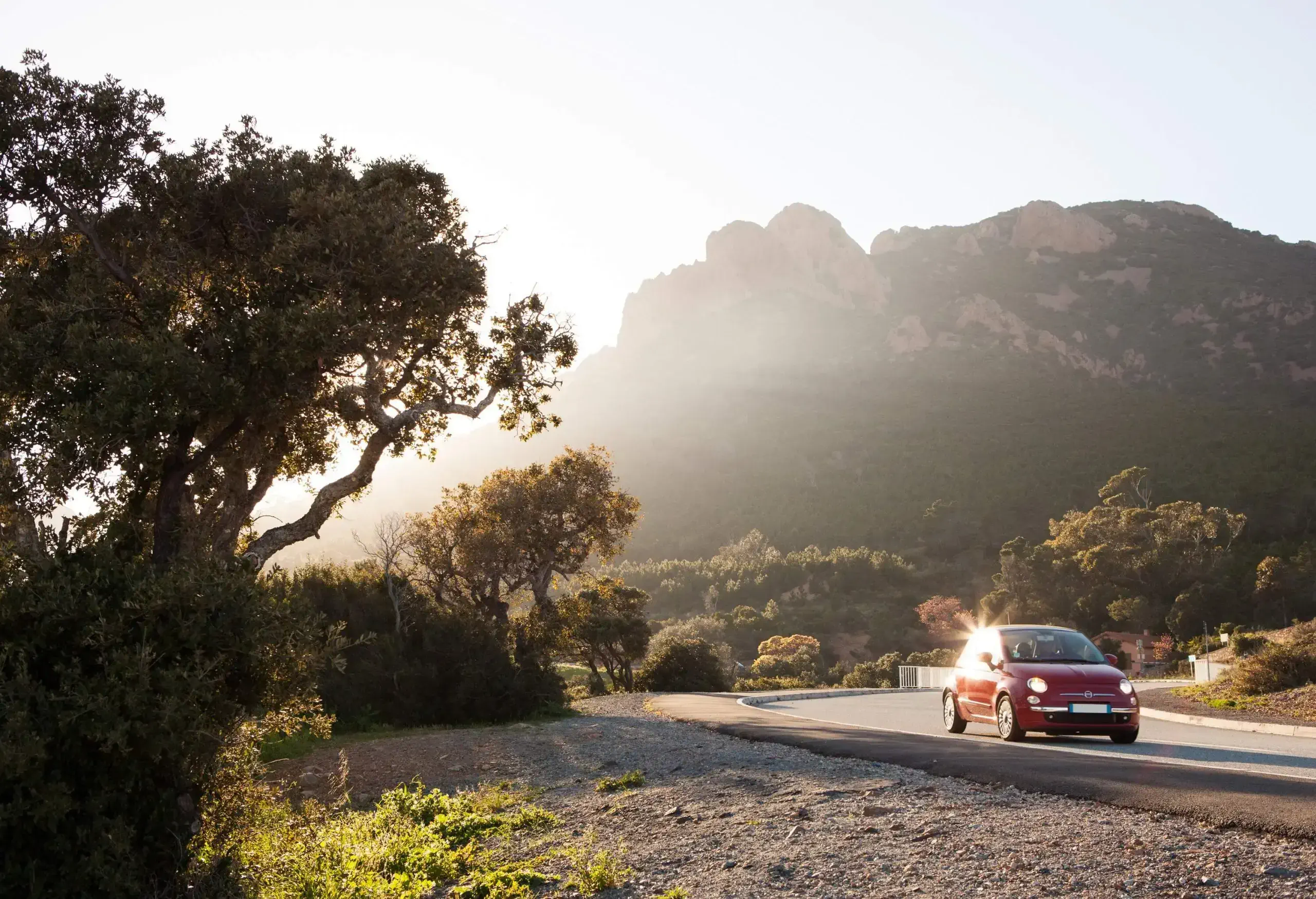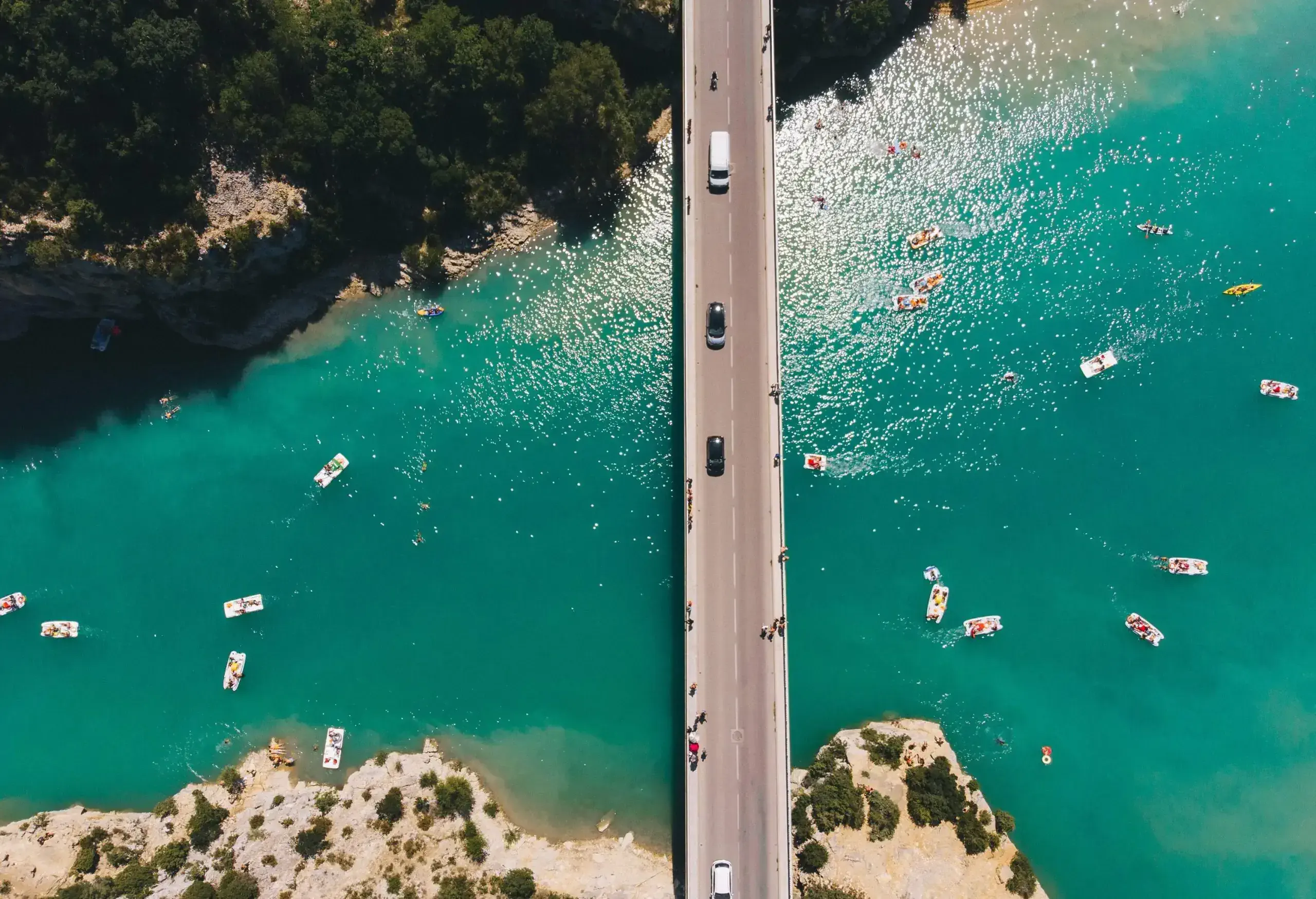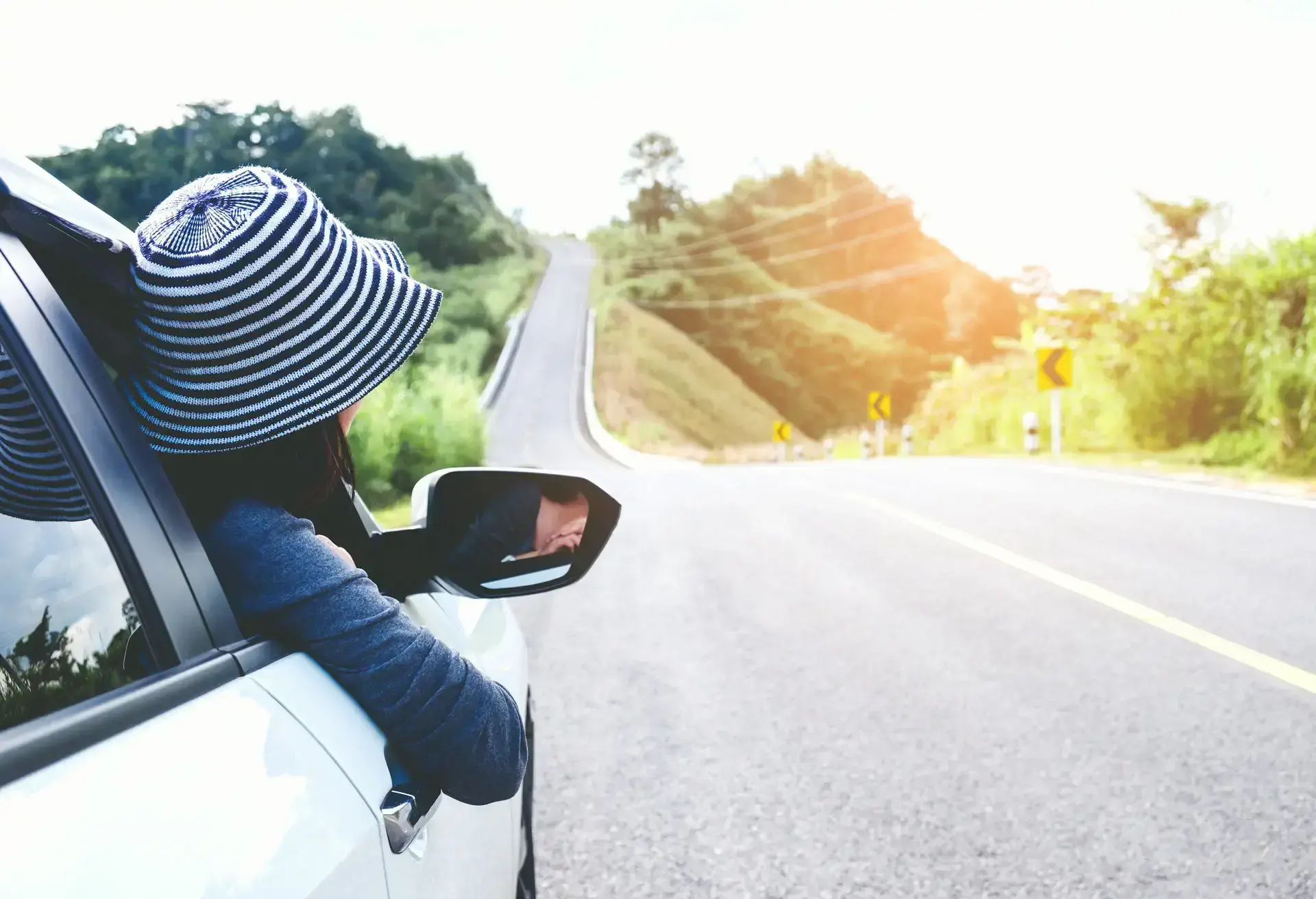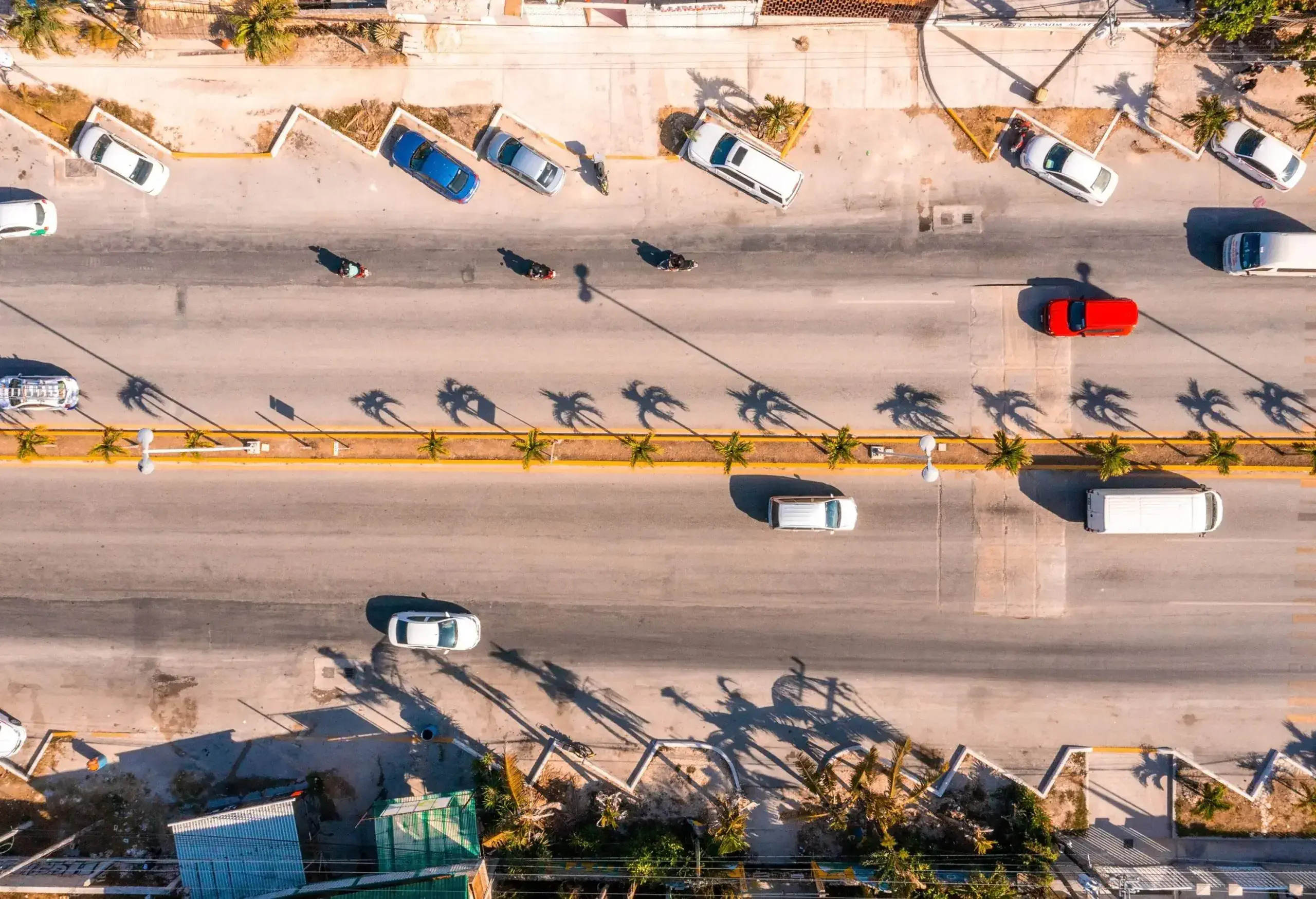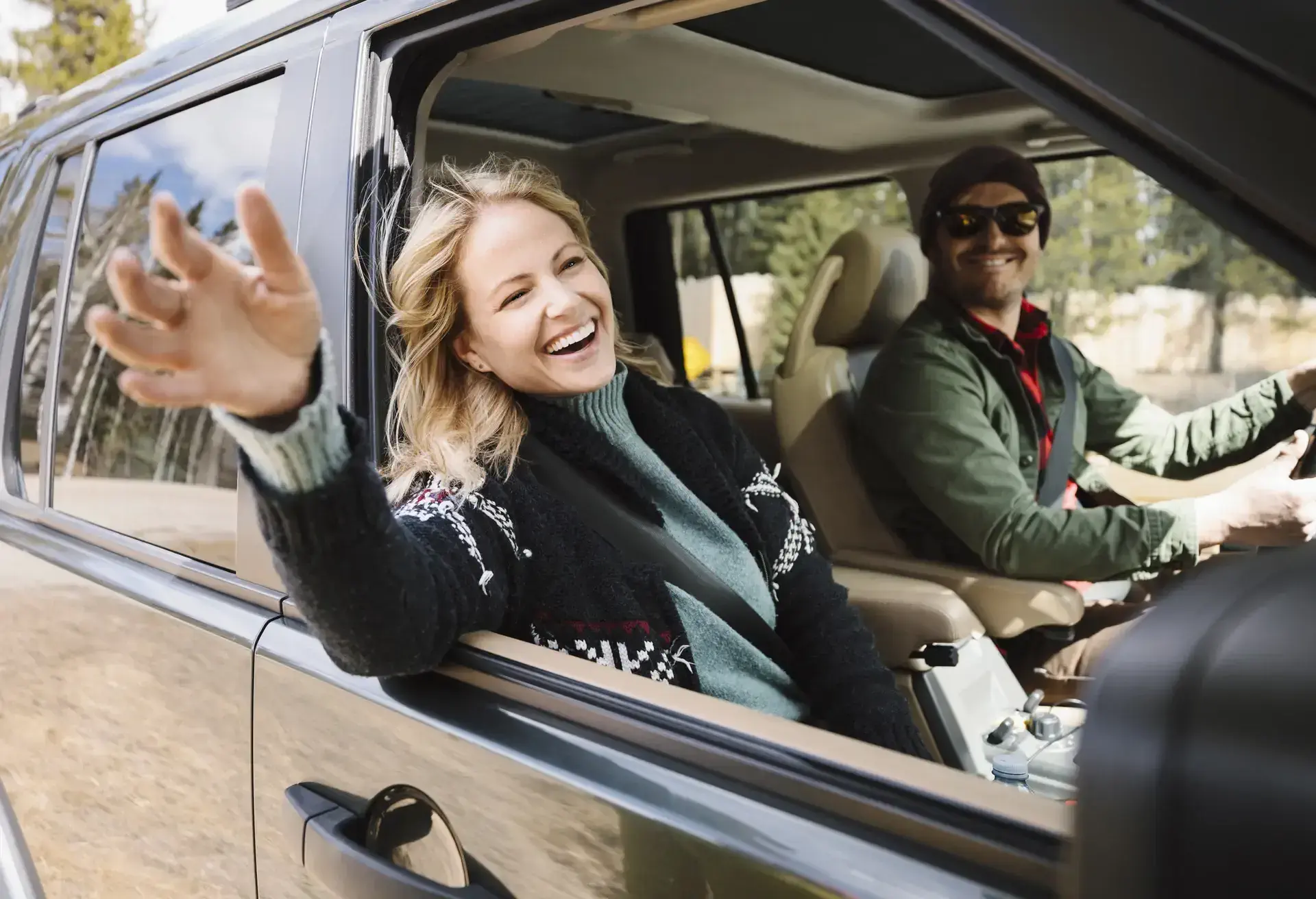Don’t leave anything up to chance if you’re heading to France on your next holiday. Read on to find out what the requirements are for driving or hiring a car in France.
Requirements for driving in France
Before you head off on your driving trip in France, make sure you’ve examined all the rules and requirements, as there are many.
Documents to carry with you
Below is a checklist of everything you’ll need for driving in France:
- Valid UK photocard driving licence
- Valid Proof of ID or National ID Card for EU citizens
- V5 original vehicle registration document (aka the log book)
- Car insurance certificate
- VE103 Vehicle on Hire Certificate, if the vehicle you’re driving is borrowed, hired, leased or a company car
- Crit’Air vignette, necessary if you’ll be driving to one of the changing environmental zones such as Paris, this badge gives your car a classification based on your vehicle’s emissions. If you have an older vehicle, you might be prohibited from driving in certain cities on designated days and times
- A UK sticker on your car unless your number plate includes a ‘UK’
Car equipment
In addition to the above documents, you should also keep these items in your car:
- Warning triangle
- High-visibility jacket
- Spare bulbs for headlights and indicator lights
- Headlight beam deflectors
- First aid kit
Other seasonal requirements include:
- Winter tyres or snow chains (if you’re driving in a ‘Snow Zone’ between November 1 and March 31)
What’s forbidden on French roads compared to the UK?
While the fundamental rules are similar to the UK, there are some specific differences. In particular, there are some rules and requirements about driving in France you should be aware of:
- It’s illegal to use any devices capable of detecting speed cameras. This includes GPS systems and mobile phone apps. Disable them before driving or you could be liable to a huge fine and having the device confiscated
- Eating and drinking is prohibited while driving
- Driving barefoot or wearing flip-flops isn’t allowed
- Using a phone while driving without a hands-free kit is illegal even if you’ve stopped the car, unless it’s in a designated parking space

Driving to France from the UK
Are you planning on going to France with your own car from the UK? Driving abroad is a great way to explore a country, but there are things you need to know before you go. Here’s all the information to make your journey as smooth as possible.
The easiest way to drive to France
The easiest way to cross from the UK into France is through the Channel Tunnel that connects Folkestone in Kent with Coquelles, close to Calais. The crossing happens on board the car-carrying Eurotunnel Le Shuttle train. There are up to four departures an hour, 24 hours a day, and the ride takes around 35 minutes.
The cost depends on a few factors including size of vehicle, month and time of day, but generally ranges from around £60 for a small car, one way overnight ticket to £275 for a fully flexible fare.
Things to know when driving to France from the UK
If you travel to France with your own car from the UK, the first thing to know is that you should drive on the righthand side of the road. As part of that, you may need to adjust the angle of your headlights. Most modern cars have a dial around the dashboard allowing you to raise and dip your headlights as you need.
The French have very different approach to using their car horns. In urban areas using the horn is strictly prohibited except to warn of an emergency or imminent danger, and definitely not in anger.
Duncan Madden, travel writer
With the UK no longer in the EU, there are restrictions on what food you can bring into France. For example, it’s forbidden to cross the border with meat and dairy products. If you want to bring fresh fruits, vegetables, and plants, you’ll have to get them inspected and pay for the privilege. To be on the safe side, don’t bring any food with you into the Tunnel. You’re going to France – there’ll be plenty of great food available, I promise!
Hiring a car in France
Here’s what you need to know if you prefer to leave your car at home and hire a vehicle in France.
What do you need to hire a car in France?
You must be at least 21 years old, although some car hire companies have a higher age limit. Below is a list of the requirements for hiring and driving in France:
- Valid UK driving licence (a full licence that you’ve had for at least a year)
- International Driving Permit (if you don’t hold a mainland UK driving licence)
- Valid passport as identification
- Credit card (although some rental agencies accept debit cards)
- Third-party liability insurance (this is usually included in the car hire contract)
Tips for hiring a car in France
There are a few things to watch out for when hiring a car in France. Rental policies usually include unlimited third-party insurance, which is a requirement for driving in France. For any additional insurance cover, it’s best to do some research and shop around – buying it over the counter will be pricier.
If you’re planning on driving in more than one country, tell the car hire company in advance. You should also double check your insurance covers you in every country you’ll be driving in.
When you pick up the car, inspect it in detail and take note of any marks or scratches. Take photos and video, inside and out, and don’t forget the windscreen and roof. On returning it, repeat the process so you have proof of the condition you returned it in. Remember that if you pick up a car with a full tank, you must also return it with a full tank to avoid refuelling charges.


Rules for driving in France
Minimum driving age
The minimum driving age in France is 16 for motorcycles, 18 for cars and 21 for larger vehicles such as buses.
Speed limits
On a day with normal traffic conditions, the speed limit is 50 km/h (about 30 mph) in built-up areas, 80 km/h (about 50 mph) on main roads, 110km/h (about 70 mph) on priority roads and 130 km/h (about 80 mph) on motorways.
The three latter speeds may be reduced if there is rain or poor visibility. Remember that speed limits in France are displayed on the roads in km/h, not mph.
| Road type | Speed limit | When it rains |
|---|---|---|
| City & built-up areas | 50 km/h (30mph) | 50 km/h (30mph) |
| Main roads | 80 km/h (50mph) | 70 km/h (43 mph) |
| Priority roads & dual carriageways | 110 km/h (70mph) | 100 km/h (62 mph) |
| Motorways | 130 km/h (80mph) | 110 km/h (68 mph) |
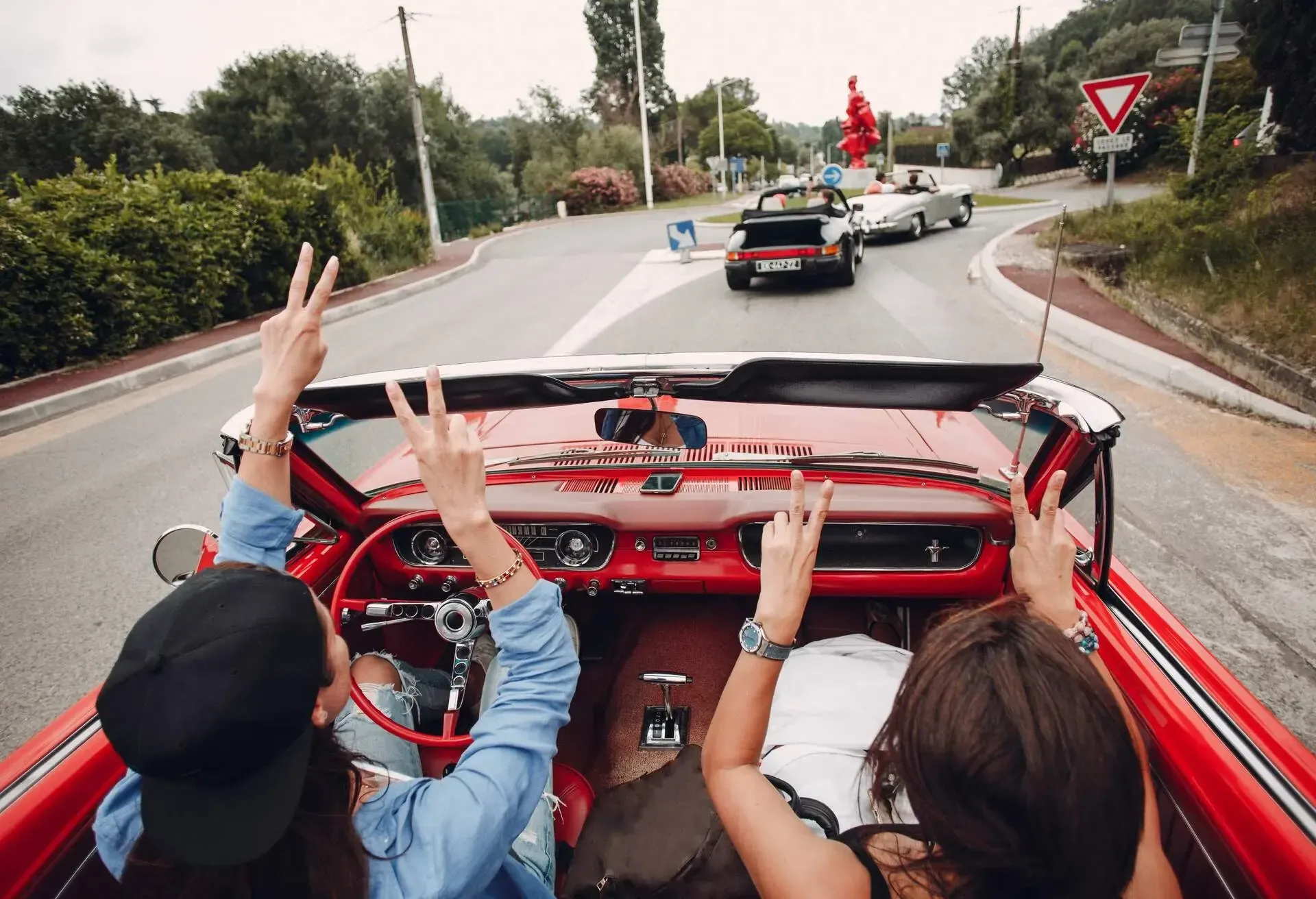
Motorways & road tolls
French motorways are privately owned by a number of companies and usually require a toll payment. You can pay in cash or by card, though only Mastercard and Visa are accepted, while Maestro and Electron debit cards are not. You’ll find three types of service area along the motorways: parking areas, resting areas with playgrounds and toilets, and full-service areas with shops and petrol stations.
In case of an emergency on the motorway, you can’t call your own breakdown company but must use one of the orange emergency telephones to request help. You’ll find them every 2km along the all motorways.
Roundabouts
In France there are two styles of roundabout with slightly different rules on who gets right of way. The new-style roundabouts work as they do in the UK, with the priority to vehicles already on the roundabout.
With old-school ‘priorité à droit’ roundabouts, any vehicles already on the roundabout must give way to vehicles entering to their right. These roundabouts are less common nowadays. You can usually recognise these roundabouts by a sign in the shape of a triangle with a red border and black X in the middle.
The most famous (and infamous) ‘priorité à droit’ roundabout in France circles the Arc de Triomphe in Paris. A challenge and sometimes a nightmare to navigate, it’s a right of passage on any French road trip!
Duncan Madden, travel writer
Alcohol allowance & drink driving
The rule in France is ‘Celui qui conduit, c’est celui qui ne boit pas’, meaning ‘The one who drives is the one who doesn’t drink’. It’s an important rule that the police take very seriously.
The maximum blood alcohol level is 0.05% – 50 mg of alcohol in 100 ml of blood. While that’s the same as for drivers in Scotland, it’s lower than the limit in England, Wales and Northern Ireland. In reality, the best rule is of course to drink no alcohol at all if you’re driving.
Child seat regulations
Children up to the age of 10 must travel in a child seat or restraint. Infants up to 13 kg need to be in a rear-facing child seat. Kids weighing up to 18kg should be in a child seat equipped with a protection tray or five-point harness. And children up to 36kg must be in a booster seat or booster cushion with an adult seatbelt to protect them.
Low emission zones
Some cities such as Paris, Toulouse and Lyon feature Low Emission Zones. In these zones, petrol and diesel cars registered before 2011 are banned from driving on weekdays from 8am to 8pm. Lorries and buses older than 1997 are also banned from driving inside these zones. Driving in them with an unauthorised vehicle can lead to fines from €68 to €450 – around £60 to £385.

Penalties & fines
There are four categories of road fine in France which, depending on the offence, could set you back anything from €11 (about £10) to €750 (about £670). You can reduce a fine by paying within three days in person or within 15 days by post. If you don’t pay within 45 days the amount will increase.
France also imposes on-the-spot fines in certain situations. I once got marched to the nearest cashpoint and forced to pay a hefty fine in cash by an irate gendarme after being caught marginally over the speed limit just outside of, ironically, Le Mans!
If you don’t have access to cash, you can usually pay fines with a credit or debit card.
Parking
If you’re looking to park on a road with traffic running in both directions, you’re must park on the right-hand side, facing the direction of traffic. If the street is one way you can park on either side, as long as it’s wide enough. Keep an eye out for yellow lines on the curb that indicate no parking.
Make sure to read the signs about paying for parking. You’ll usually see a big ‘P’ on the parking meter, or ‘horodateur’, if you have to pay. Otherwise there will be signs depicting a parking meter, usually in the bottom right hand corner. Disabled drivers have dedicated spots and do not have to pay for car parking.
Fuel
Knowing the French names for the different types of fuel can help you avoid the nightmare scenario of filling up with the wrong petrol.
- Petrol is called Essence (usually labelled as super / super 97)
- Unleaded petrol is called Sans Plomb (usually labelled as SP95 and SP98)
- Diesel is called Gazole or Gasoil
LPG is also available, confusing called GPL in France and Italy. Electric charging stations are also available in some locations, though are few and far between in rural areas.
You can usually for fuel pay by cash or by card, but some automated machines don’t accept foreign cards. Make sure you have enough cash to cover the fuel, especially when driving on Sundays.
Driving in France FAQs
To drive in France you must be at least 18 years of age, or 21 when hiring a car. You must also have with you a valid UK driving licence, or International Driving Permit if you don’t hold a mainland UK driving licence, and your passport as a form of ID. In addition, you must have a Green Card insurance certificate for your car.
If you want to hire a car in France you must hold a full UK driving licence that’s at least one year old. You also need a credit or debit card and unlimited third-party insurance. After Brexit, you’ll also need your passport for identification and an International Driving Permit if you don’t hold a mainland UK driving licence.
After Brexit you can still drive as a tourist in France using your British driving licence, as long as you also present an International Driving Permit (if you don’t hold a mainland UK licence). If you’re driving your own car you must also have a Green Card insurance certificate.
To hire a car in France you must be 21 years or older. If you’re in any doubt, check in advance with the car rental company, as there may be other factors to consider beyond driver age.
If your number plate includes ‘UK’ on it, you don’t have to display a UK sticker on your vehicle. But it is mandatory to inform other drivers, in a visible way, that your car is from the UK.
Since the 22nd of May 2020, it is no longer mandatory to carry a breathalyser in your car when driving in France.
British passport holders living in or wishing to travel to the EU, and EU nationals living in or wishing to travel to the UK, since January 1, 2021 should check all travel-related information on the official government webpage to inform themself about information pertinent to Brexit when making travel decisions.




